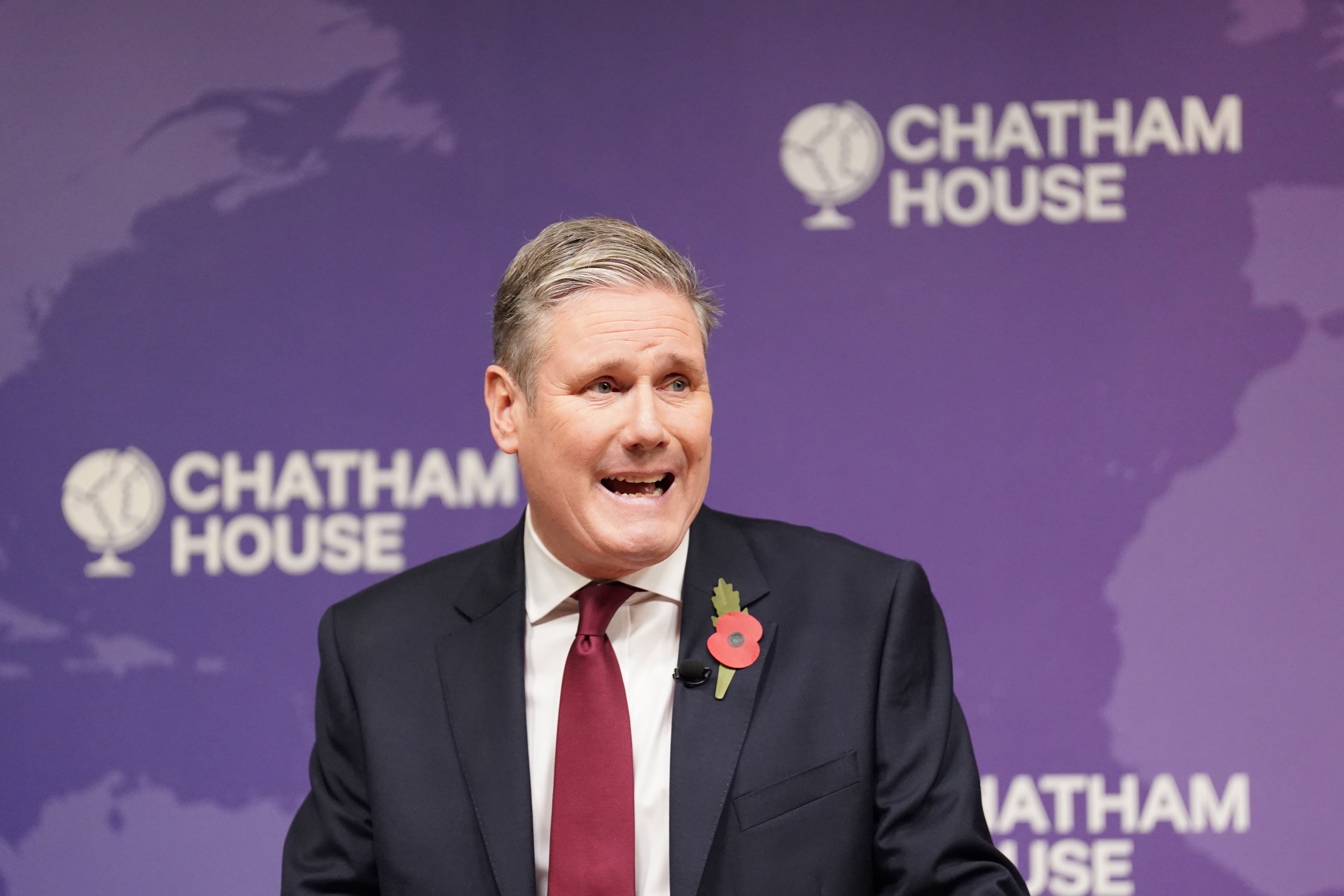If Starmer wants to be PM, he must not U-turn on Israel ceasefire
The Israeli airstrikes on a refugee camp has made the Labour leader’s refusal to budge ever more incendiary within his party – but for British voters (and our US allies) it’s a chance to observe how a PM-in-waiting handles pressure, says Andrew Grice


Keir Starmer’s response to the Israel-Hamas war is a story of one step forward, one step back. His overdue speech yesterday was rightly more balanced than his original stance; he acknowledged the suffering of the Palestinians and that Israel’s right to self-defence is “not a blank cheque”.
But the Labour leader rejected pressure from many in his party, including 14 frontbenchers, for a full ceasefire, saying this would allow Hamas to mount future attacks on Israel. He stuck to his call for a temporary humanitarian pause, but left himself a little wriggle room by saying a full ceasefire is not the right argument “at this time”.
This was an insurance policy in case the catastrophe in Gaza gets even worse – and indeed it has since the speech. Today, David Lammy, the shadow foreign secretary, demanded an explanation from Israel for its bombing attack on the Jabalia refugee camp, which killed civilians.
He told BBC Radio 4: “It is important for Israel to explain how this conforms with the laws of war, how does it conform as proportionate, because clearly those scenes are very troubling.” Whatever Israel says about targeting Hamas leaders, many Labour MPs think its action will be hard to justify morally.
Passions are high on both sides of Labour’s divide. The case for Starmer’s opposition to a full ceasefire was put by Peter Mandelson, who told a Times Radio podcast: “This is cold-blooded murder that has been visited on the Israeli people. And for them just to sort of do nothing and not to take the fight to Hamas, to stop them doing this again, to defend their country and their people, would be ridiculous.”
Although that will enrage the left, Starmer’s address achieved one of his goals: to divide and rule his internal critics. Some of his soft-left allies welcomed what they saw as his more reassuring tone, while the hard left inevitably rejected it.
Yet the gruesome pictures from the refugee camp wiped out some of Starmer’s progress.
Rosena Allin-Khan, a former shadow cabinet member, said opponents of a ceasefire should “stand up and explain what they’ll do to avoid more devastating bloodshed like this”. More than 300 Labour councillors have now demanded an immediate ceasefire.
Team Starmer insists he has not set aside collective responsibility, which forces frontbenchers to toe the leadership’s line or depart. But the rule does seem to have been suspended for junior frontbenchers outside his top team in the shadow cabinet, who have been allowed – so far – to call publicly for a ceasefire.
The question now is: how will Starmer react if any frontbenchers stray over the clearer line he has belatedly drawn? One sacking could be followed by several resignations in protest. He is not out of the woods yet.
In sticking to his guns, Starmer is hoping to appeal to swing voters by challenging his party to face reality and hard choices, just as Tony Blair did before the 1997 election – even if that risks alienating people on the left (and in Starmer’s case, 2 million Muslim voters). Starmer’s move is not without risks. His personal ratings have dropped by 12 points since the war began, according to Deltapoll. His net approval rating is now minus five points, though Rishi Sunak’s is minus 30 points, and Labour’s standing has risen over the same period.
Starmer is rightly acting like a prime minister-in-waiting, rather than a leader of opposition who can take the easy option – in this case, calling for the ceasefire many in the party and the wider public understandably want.
He didn’t say it, but Starmer knows the UK’s allies, notably the US, are also looking at how he handles his response to the war. Labour has often had an anti-American streak and one reason why Blair was so intent on supporting George Bush’s ill-fated decision to invade Iraq was to banish memories of it. Starmer is sending a signal he would be a reliable partner.
The other question arising from his failure to enforce collective responsibility is: what if Labour rebels find a domestic cause, such as a manifesto pledge to scrap the two-child benefit limit? Starmer would have to face them down or his authority would be shot.
Some Starmer allies think the media is overblowing the party’s internal debate; they are surprised the ferment is not greater. As one told me: “It is not a frenzy. It is a small collection of headless chickens. Situation normal.”
I think the frenzy is real, but that Starmer will come through his biggest test as Labour leader. His trump card is that it is also a test for his party, most of which wants to win power rather than tear itself apart over a war it cannot influence.





Join our commenting forum
Join thought-provoking conversations, follow other Independent readers and see their replies
Comments